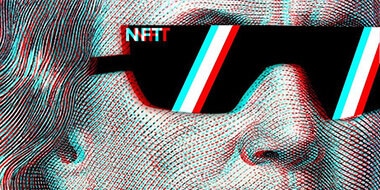|
|
|
CPD Course:
Art,
Digital Technology
and Law
Presented by
Prof. Steven Gallagher,
Professor of Practice in Law,
Associate Dean
(Academic & Student Affairs),
The Faculty of Law,
The Chinese University of Hong Kong |

|
|
|
      |
|
| Code: |
EVT000000427 |
Level: |
Intermediate |
|
|
|
|
| Date: |
26 April 2024 (Friday) |
Language: |
English |
|
|
|
|
| Time: |
14:30 - 17:45
(Reception starts at 14:00) |
Accreditation(s): |
LSHK 3.0 CPD Points |
|
|
|
|
| Venue: |
|
Request for Rerun: |
|
|
|
|
|
|
| Presenter's Profile: |
|
|
Steven Gallagher was awarded a first class LL.B. He was called to the Bar of England and Wales in 2006. Steven teaches equity and trusts, property law, and digital technology and law. Steven also teaches a course on art, antiquities, cultural heritage and the law. Steven has presented continuing professional development courses for solicitors in Hong Kong on many topics associated with property. Steven’s research interests include equity and the law of trusts, Chinese custom and law, art and cultural heritage law, legal history, and law and technology. He is not a technologist. In 2023 Steven published the first treatise dealing formally and systematically with all the major aspects of and entitled, Digital Technology and Law.
|
|
|
|
| Course Outline: |
|
In March 2021, a non-fungible token (NFT) based upon the artist Beeple’s "purely digital work" entitled, "Everydays - The First Five Thousand Days", sold at Christie's auction for US$69.3 million. The media reported the buyer used a cryptocurrency for the purchase, from his digital wallet and, rather than display it on a wall, will store the NFT on "a" blockchain. The art world is embracing digital technology and, seemingly, going digital will solve all its problems. Artificial intelligence is creating artworks that sell for large sums. The digital technological advances of blockchain and digital sequencing are being promoted to establish secure provenance chains for artworks and antiquities, which should provide confidence in a regulated and honest art and antiquities market. Blockchain and associated digital technologies will eliminate fake art works, minimize theft and help combat the illicit trade in antiquities. Cryptocurrencies may back art and heritage projects, including the raising of sunken treasure ships with Russian gold.
This three-hour course will consider the impact of technological advances such as NFTs, blockchain and cryptocurrency on the business of art, antiquities and cultural heritage, and the legal issues that have arisen with regard to digital technologies and the art and antiquities trade. The seminar will conclude by considering some of the legal issues which may occur in the future.
|
| Some of the topics which will be covered in this course include: |
- What is a non-fungible token?
- What is blockchain?
- What is a cryptocurrency?
- How may digital technologies affect the art and antiquities trade?
- How may digital technologies affect museums and galleries?
- How may blockchain improve provenance tracing?
- How may blockchain disrupt the illicit antiquities trafficking?
- How may cryptocurrencies affect secure payment for artists, dealers and auctions?
- How may art and heritage projects benefit from cryptocurrency fund raising?
- Can artificial intelligence create art?
- Who owns AI created art?
- If digital wallets are so secure, why are there reports of frauds, losses and thefts?
- Is there a market in fake NFTs?
- Is cryptocurrency a boon for the art and heritage fraudster?
- Is cryptocurrency almost as good as art for money laundering?
|
|
|
|
This course is provided by: |
 |
|
|
 |
Relevant CPD Courses |
 |
|
|
|
|
|
|
|
|
|
|
|
|
|
|
|
|
 |
|
 |
|
|
|
|
 |
            |
|
Telephone: +852 3118 2371 | Facsimile: +852 3118 2372 Postal Address: P.O. Box 9993, General Post Office, Hong Kong |
|
|
|
|